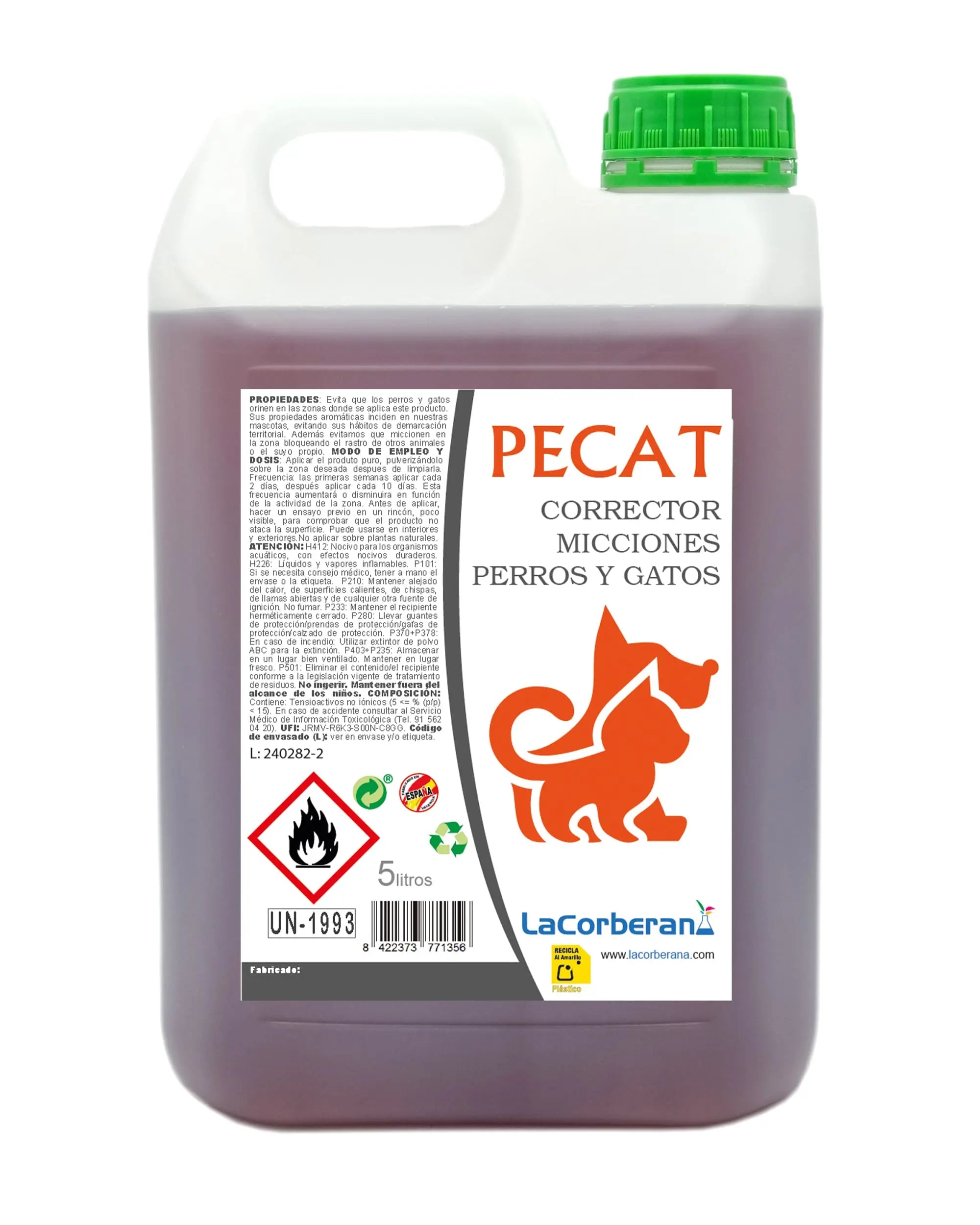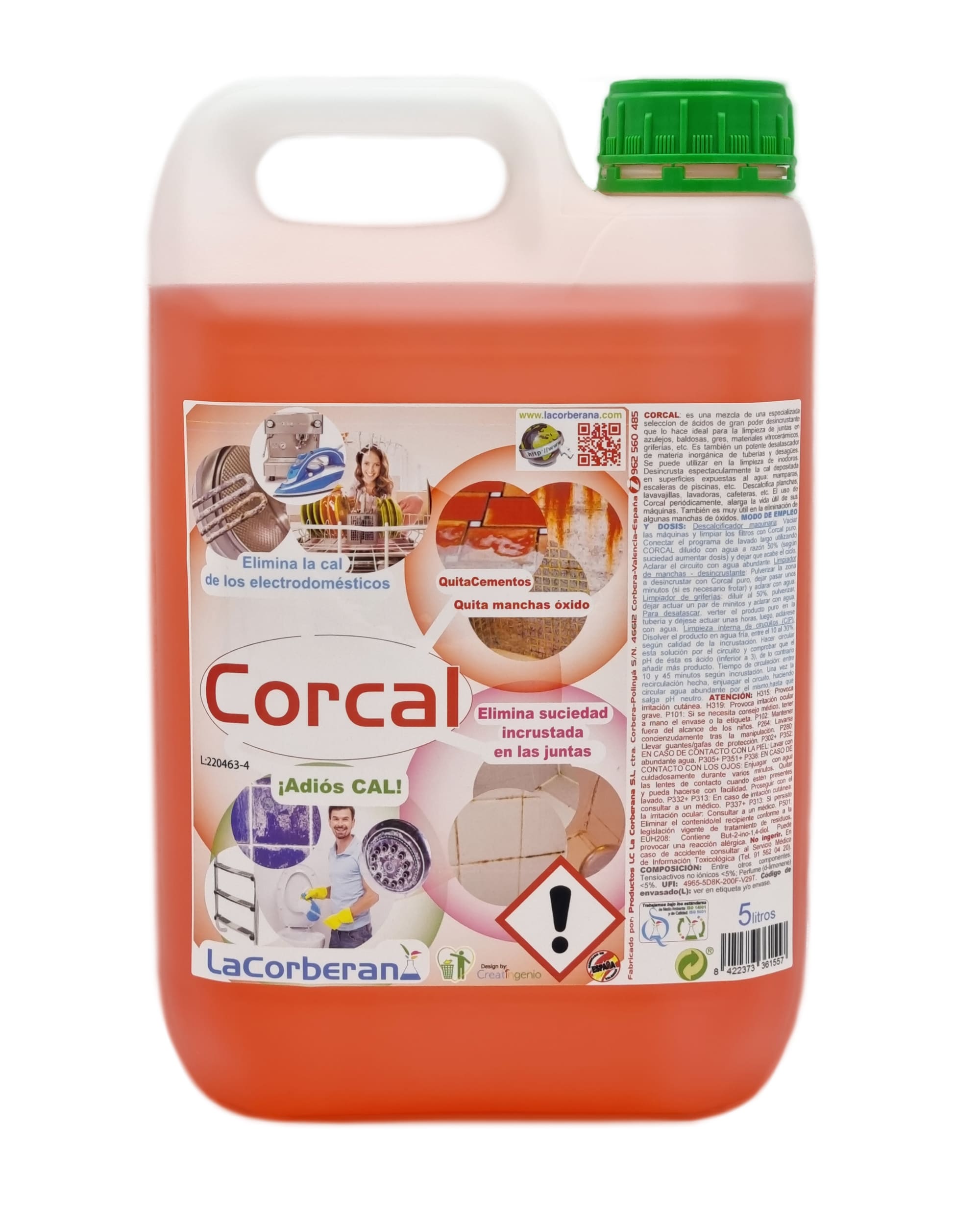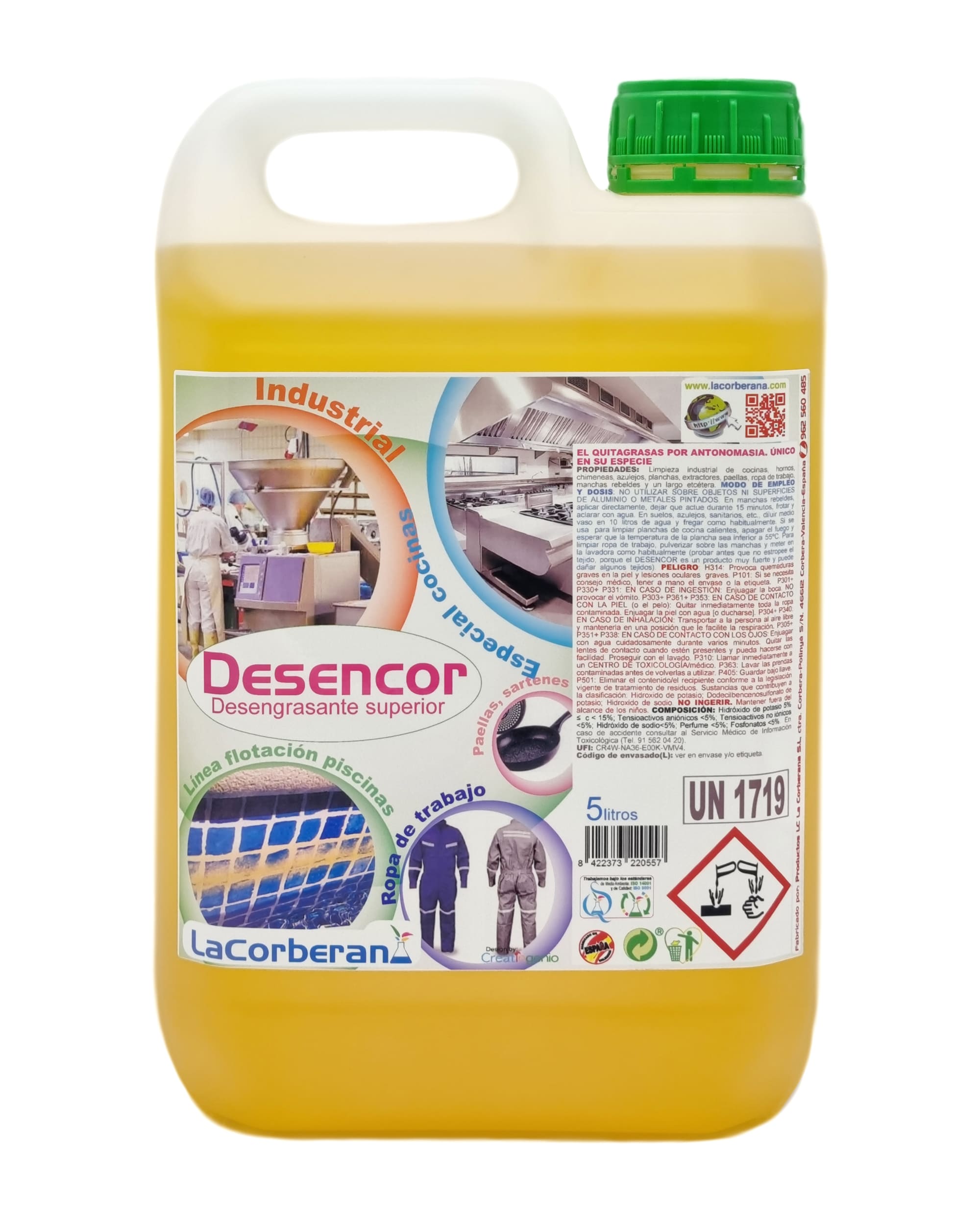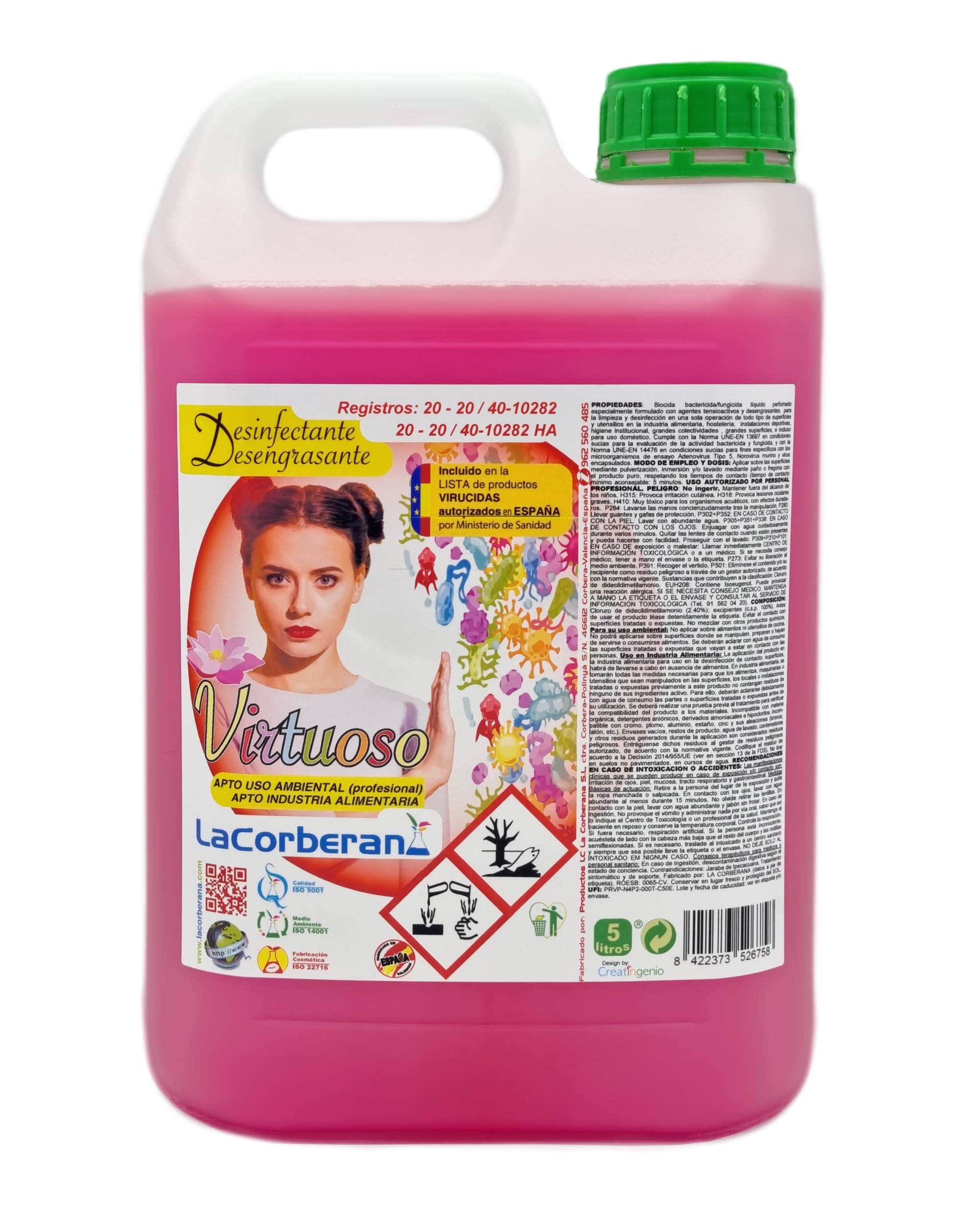The rise of sustainability has transformed the way we understand professional cleaning. More and more companies, hotels, schools, and sports centers are looking for effective products that are also environmentally friendly.
Among the many labels and standards that attempt to guarantee this responsibility, two of the most frequently mentioned stand out: the European Union Ecolabel and UNE-ISO 16128 .
Although they are often used together, they do not actually mean the same thing . The Ecolabel focuses on the overall environmental impact of a product , while UNE-ISO 16128 measures the proportion of ingredients of natural origin .
Understanding this difference is key to making informed choices and assessing what's really behind "eco" packaging.
🌿 1. What is the Ecolabel and what does it guarantee for cleaning products?
The European Ecolabel was created in 1992 with a clear objective: to recognize products that generate a lower environmental impact throughout their life cycle .
It's not just about the chemical composition, but also about packaging, transportation, efficiency and waste management .
For professional cleaning products, the criteria include:
-
Controlled biodegradability of surfactants and main components.
-
Reduction of substances hazardous to health and aquatic ecosystems.
-
Concentrated formulas , which require less quantity per use.
-
Recyclable or reusable packaging , with less plastic.
-
Effectiveness tests , which demonstrate that the product cleans as well as or better than a conventional one.
In short, the Ecolabel does not certify that a product is 100% natural , but rather that it has less impact on the environment globally .
A cleaner with this seal may contain synthetic ingredients, but under strict toxicity limits and with verified biodegradability.
🌱 2. What does the UNE-ISO 16128 standard evaluate and why is it mentioned in cleaning?
UNE-ISO 16128 was born in the cosmetics sector, but its principles have been extended to the chemical sector.
It is not an official certification, but rather a technical standard that defines the origin of the ingredients : whether they are natural, of natural origin, organic or synthetic.
Its purpose is to provide transparency : it allows you to know what percentage of a formula comes from natural sources.
For example, a detergent that meets this standard may state that it contains 85% ingredients of natural origin , which helps the consumer better understand its composition.
However, UNE-ISO 16128 does not assess the total environmental impact .
A product can be very natural and still have a high ecological footprint if it consumes a lot of water, requires high doses, or uses non-recyclable packaging.
Therefore, this standard complements, but does not replace, environmental certifications.
⚖️ 3. Ecolabel and UNE-ISO 16128 face to face
| Criterion | EU Ecolabel | UNE-ISO 16128 |
|---|---|---|
| Nature | Official European certification | International technical standard |
| Main focus | Global environmental impact of the product | Natural origin of the ingredients |
| What it evaluates | Biodegradability, toxicity, packaging, efficacy | Percentage of natural or derived ingredients |
| External control | Yes, verification by independent bodies | No, manufacturer's self-declaration |
| Bottom line | More sustainable product compared to the market average | More natural formula, but not necessarily more sustainable |
| Recognition | Stop: Official EU seal | Medium: voluntary technical reference |
Both tools do not compete , but rather complement each other :
The Ecolabel ensures that the product has a reduced environmental impact, while UNE-ISO 16128 reveals the natural origin of its components.
🧪 4. Why having an Ecolabel doesn't mean being "100% natural"
It's a common misunderstanding. Many users associate the Ecolabel seal with "chemical-free" products, but that interpretation is incorrect.
The Ecolabel does not prohibit the use of synthetic ingredients; it regulates their quantity, origin, and degradability .
For example:
-
A detergent with synthetic surfactants can obtain an Ecolabel if they are rapidly biodegradable and non-toxic to the aquatic environment.
-
A plant-based product may not qualify for the seal if its manufacturing or packaging process generates more emissions or waste.
That's why Ecolabel values the whole , not just the formula.
Hence its importance for companies seeking a balance between performance and sustainability .
🧴 5. Limitations of UNE-ISO 16128 when applied to cleaning products
The standard provides clarity, but does not guarantee a smaller ecological footprint .
A cleaner with 90% natural ingredients can still have:
-
High demand for water in its manufacture.
-
Poorly recyclable packaging .
-
High emissions in transport.
-
Higher usage doses than a concentrated product with Ecolabel.
Therefore, a natural formulation does not always equal a greener option.
True sustainability depends on the entire product life cycle , not just the raw materials.
🌍 6. The combined approach: towards truly sustainable cleaning
The most coherent option is to combine both criteria:
-
Meet the Ecolabel requirements , ensuring a reduced overall environmental impact.
-
Apply the principles of UNE-ISO 16128 , increasing the use of natural and renewable raw materials.
This creates an effective, safe, and environmentally friendly product that is respectful of both the user and the environment.
At La Corberana we follow precisely that approach:
-
We develop concentrated formulas that reduce waste and energy consumption.
-
We select biodegradable ingredients and prioritize those of plant origin.
-
We use recyclable packaging and optimize transportation to reduce emissions.
All of this under European quality standards and verified certifications .
♻️ 7. Why certifications add value to the professional client
In professional cleaning—whether in hospitality, gyms, educational centers, or healthcare—choosing certified products brings real benefits:
-
Regulatory compliance : facilitates environmental or ISO 14001 audits.
-
Security and transparency : the user knows what he or she is purchasing and what impact it has.
-
Sustainable reputation : Companies that use certified products reinforce their responsible image.
-
Guaranteed performance : Ecolabel products must demonstrate efficacy in the laboratory, not just on the label.
For this reason, more and more public cleaning contracts and tenders require the use of products with this type of certification.
🧭 8. The Commitment of La Corberana
At La Corberana, we don't understand sustainability as a demand, but rather as an ongoing responsibility.
Our products with Ecolabel and other European certifications are developed under a clear philosophy:
-
Reduce the impact without sacrificing professional effectiveness.
-
Commit to formulations that are safe for the user and the environment.
-
Manufacturing in Spain with efficient and controlled processes.
In this way, we offer our customers the peace of mind of working with truly sustainable cleaning solutions , not just eco-friendly ones.
Conclusion
The debate between Ecolabel and UNE-ISO 16128 is not a question of choosing one or the other.
The future of professional cleaning involves combining both perspectives :
the environmental efficiency promoted by the Ecolabel and the transparency regarding the ingredients provided by UNE-ISO 16128.
Only in this way can we achieve products that respect the planet, protect health, and maintain the effectiveness that professionals need.
And that's the line of work we follow every day at La Corberana , manufacturing professional cleaning chemicals in Spain with a real commitment to sustainability.




